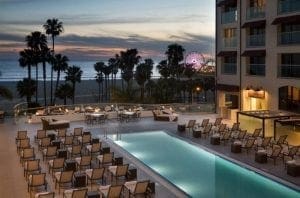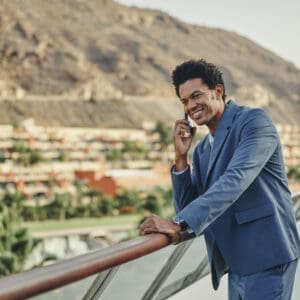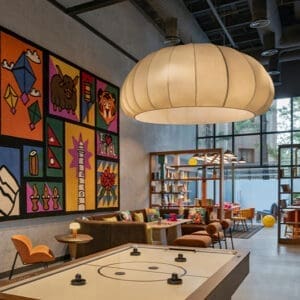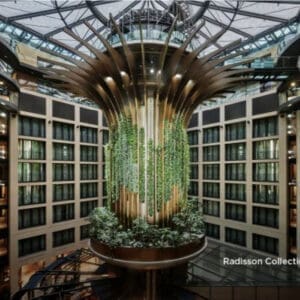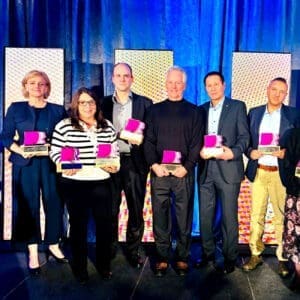
Growth. It’s encouraging to start the year with travel industry forecasts projecting 7.6% RevPar growth, 4.1% ADR growth, and 3.4% occupancy growth. Where there is growth there is opportunity, and the greatest opportunity in the industry right now is to re-envision the way we use technology to capture that new demand and ultimately, revenue.
Though online channels receive the lion’s share of attention these days, the truth is that growth really lies in using technology not to become more hands-off—making the process less personal—but rather in harnessing technology to make the process more personal and better tailored to traveler needs. With this goal in mind, here are five of the top travel trends to look out for this year.
1) Direct Reservations: The Personal Channel
Capturing additional revenue during this period of growth means shifting strategies to emphasize the most profitable reservations; these are direct—and personal. Among a survey of the reasons travelers reserve offline, 35% say they want personal service and 15% desire a particular travel agent or agency. Baby Boomers, of which there are currently 74 million, are driving a resurgence in travel agencies. They prefer a personal touch especially when crafting culturally immersive experiences. Also interesting is the fact that 33% of wealthy Millennials (earning $150K or more) are using traditional travel agents more than any other income bracket. The point here is that the desire to interact with a person when planning travel not only has not diminished, it is becoming increasingly important. For hotels in search of the most profitable reservations, this means reevaluating your approach to voice reservations and ensuring this area of your property is receiving the attention it should.
2) Millennials Matter
Recent research indicates the industry is moving toward mobile-influenced offline sales, and Millennials are leading this trend. The over 80 million Millennials coming into their economic prime have been pigeonholed as “digital natives.” Everyone has assumed that their dependence on screens translates to online sales. It turns out that in their quest for adventure and unique experiences Millennials tend to research on mobile but make actual purchases in store or call to speak with a person before they commit. They desire click-to-call capabilities on mobile sites, a must-have for hotels at this point, and they feel more confident about their travel decisions after speaking with someone.
3) Hybrid Travel Segments
Much like Millennials are changing the shape of the consumer experience in unexpected ways, travel segments are hybridizing in ways that offer opportunities and challenges. For instance, increasingly popular “framily” travel, groups of friends traveling together with their children, is complicated to organize with many guests and accommodation types required. The “bleisure” segment has existed for a long time, but hotels are just now trying to reach them as a market to capture the true potential of both the business and the leisure aspect of the travel, which can lead to its own set of complexities. Both of these segments really require a personalized approach in order to offer an exceptional experience without organizational snags.
Other segments worth paying attention to include Experiential, Multigenerational, Lifestyle, Local Knowledge, and Sharing Economy (because the guests who are booking through sharing sites are your hotel’s potential revenue if approached in a fresh way.)
4) Selling Experiences Requires Personalisation
The success of Airbnb is built on the idea that travelers want a new kind of experience: they want to meet locals and they want to have authentic experiences. Travelers are increasingly after unusual, inventive, and immersive trips. It’s the “wow” factor. For hotels to stay competitive, a personal touch is required. In addition to customizing online content, make the ability to speak with a reservation agent as easy as possible and ensure agents have the tools and training necessary to deliver personalized offers and packages.
5) The Purpose of Data is to Understand People
An important extension of having an expert reservations team is providing the proper technology so that they may capture as much useful, relevant data about travelers as possible. Some of this data capture can be automated, while some of it depends on the agents who answer the phone and their willingness, and drive, to gather information during the sales process. Hotels need to understand their staying guests so they may offer exceptional service (and increase the potential for ancillary revenue), but they must also dig deeper to understand their lost business. Having the data on hand to go back to that abandoned reservation and have an authentic, informed connection, whether that’s a phone call from a reservation sales agent or an email with a package tailored to their interests, is critical to capturing some of this year’s occupancy growth.
For more on reservations and guest interaction best practices, see the 7 Non-Negotiables that NAVIS recommends to all hotels and resorts.
About the author
 Michelle Marquis joined NAVIS in 2006 after serving as Director of Sales and Marketing at Mount Bachelor Village Resort in Bend, Oregon. As a previous NAVIS “power user”, she successfully utilized The NAVIS Way to help her resort increase their conversion rates and bring in incremental revenue from their existing call volume. Michelle draws on her 20+ years of hospitality sales experience heading up the NAVIS Sales Consultant team. As NAVIS continues to grow at a rapid pace, Michelle also focuses on the company’s strategic expansion and exciting path to international markets. She is a frequent speaker at numerous hospitality events around the U.S., including the Google Travel Conference, HSMAI and Preferred Hotel Group. Michelle has a deep understanding of what it takes to drive revenue in the hospitality industry and is driven to help hotels, resorts and vacation rental companies be more successful.
Michelle Marquis joined NAVIS in 2006 after serving as Director of Sales and Marketing at Mount Bachelor Village Resort in Bend, Oregon. As a previous NAVIS “power user”, she successfully utilized The NAVIS Way to help her resort increase their conversion rates and bring in incremental revenue from their existing call volume. Michelle draws on her 20+ years of hospitality sales experience heading up the NAVIS Sales Consultant team. As NAVIS continues to grow at a rapid pace, Michelle also focuses on the company’s strategic expansion and exciting path to international markets. She is a frequent speaker at numerous hospitality events around the U.S., including the Google Travel Conference, HSMAI and Preferred Hotel Group. Michelle has a deep understanding of what it takes to drive revenue in the hospitality industry and is driven to help hotels, resorts and vacation rental companies be more successful.


